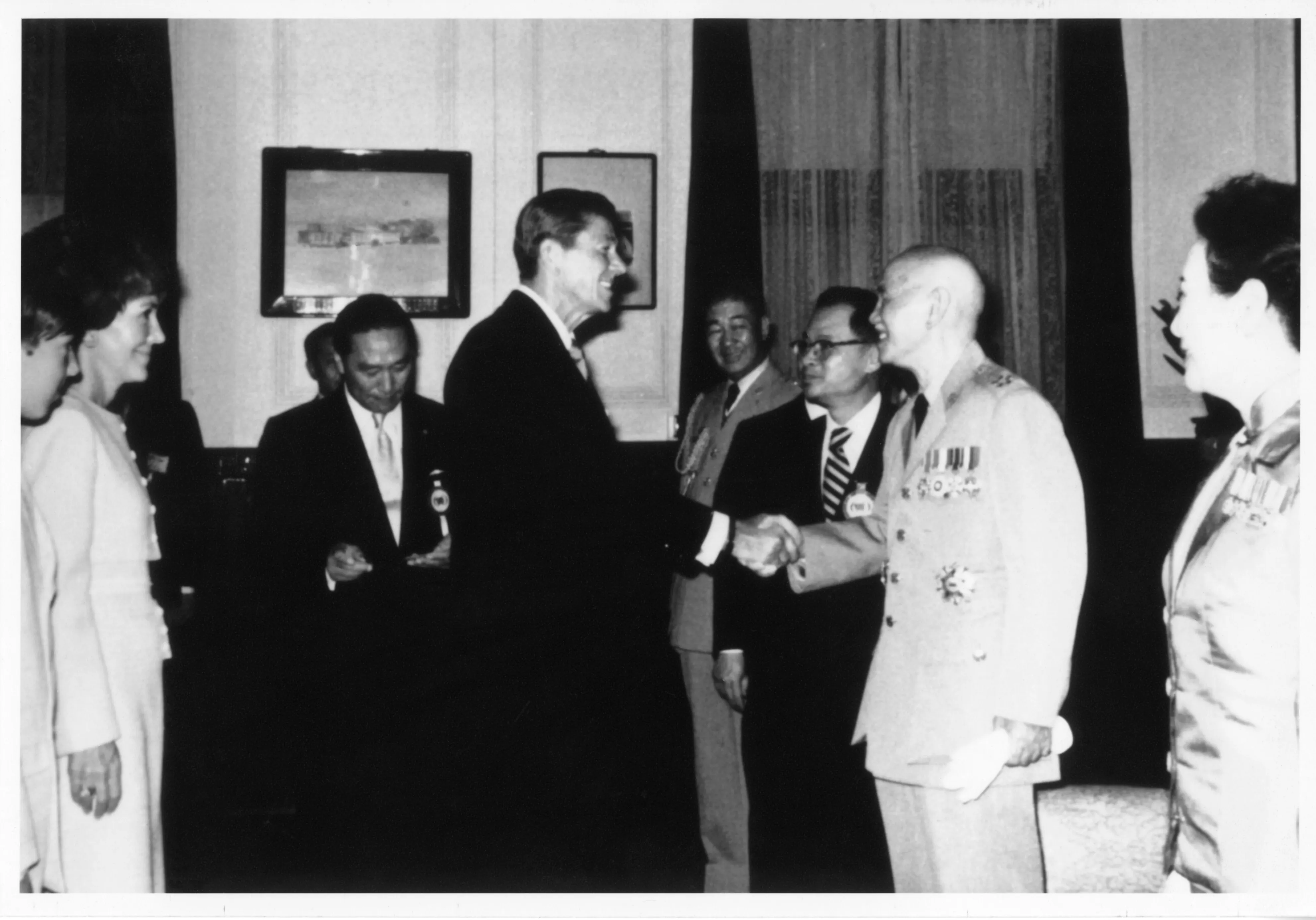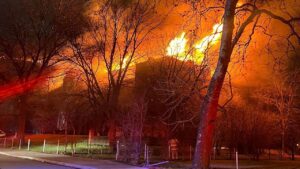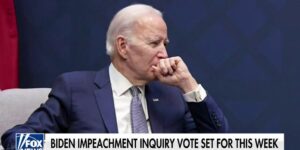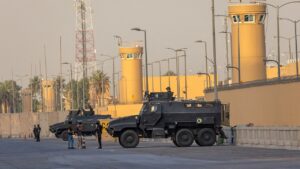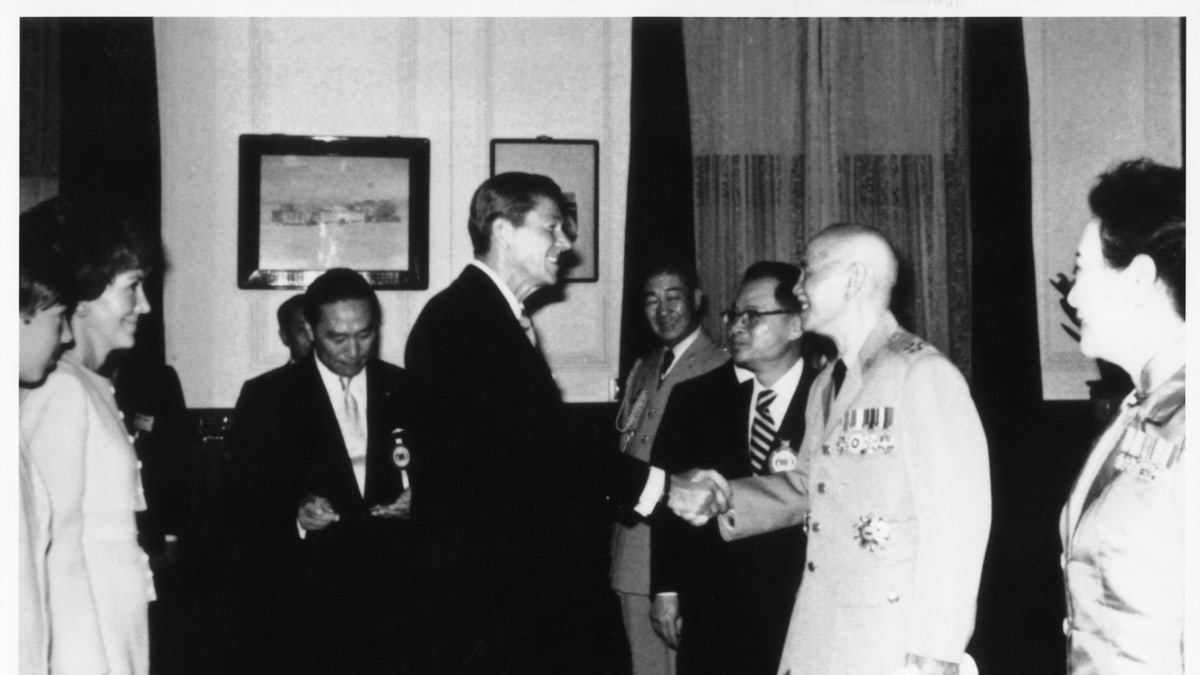
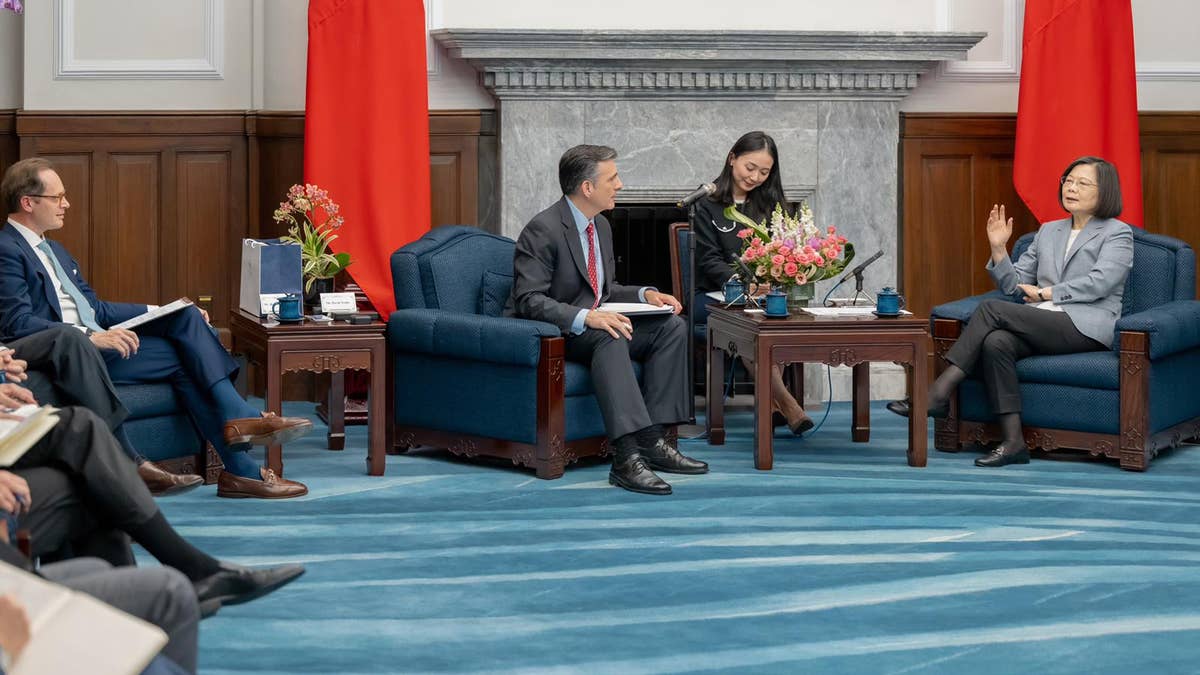
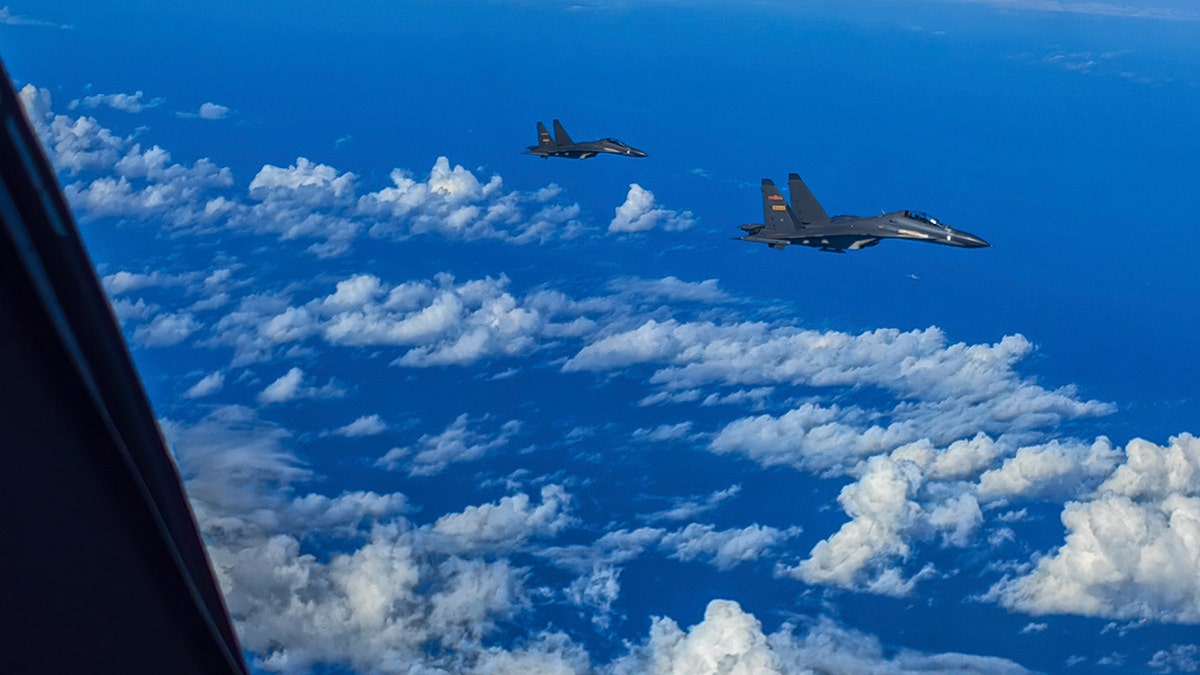
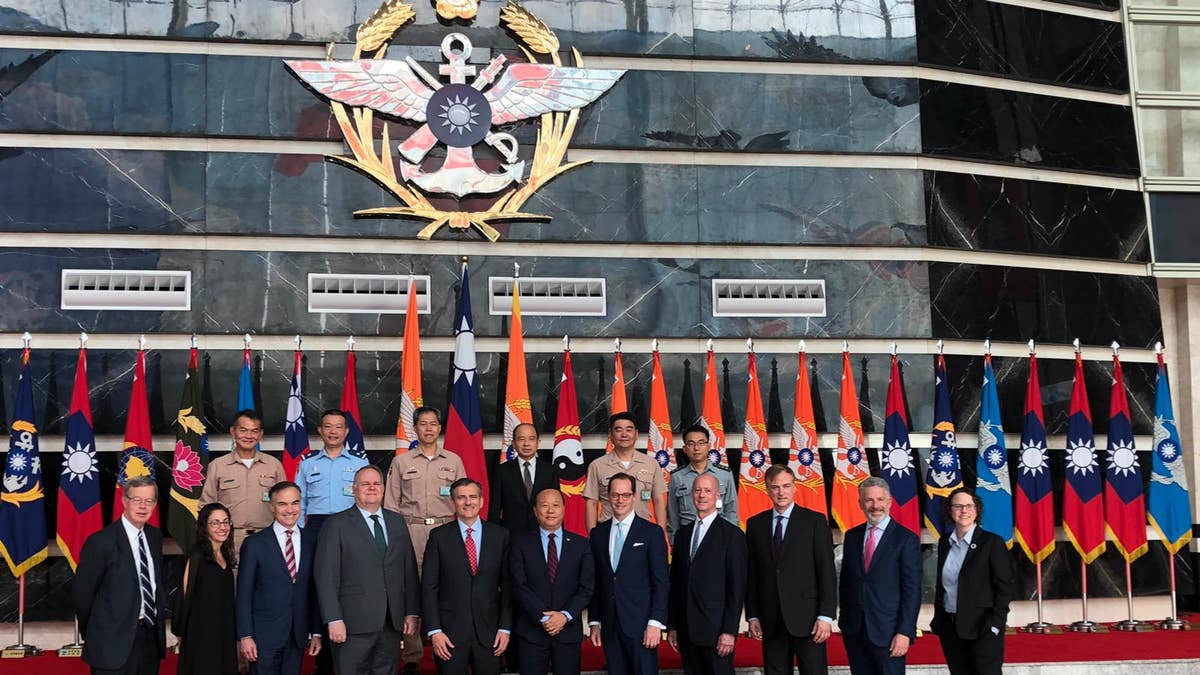
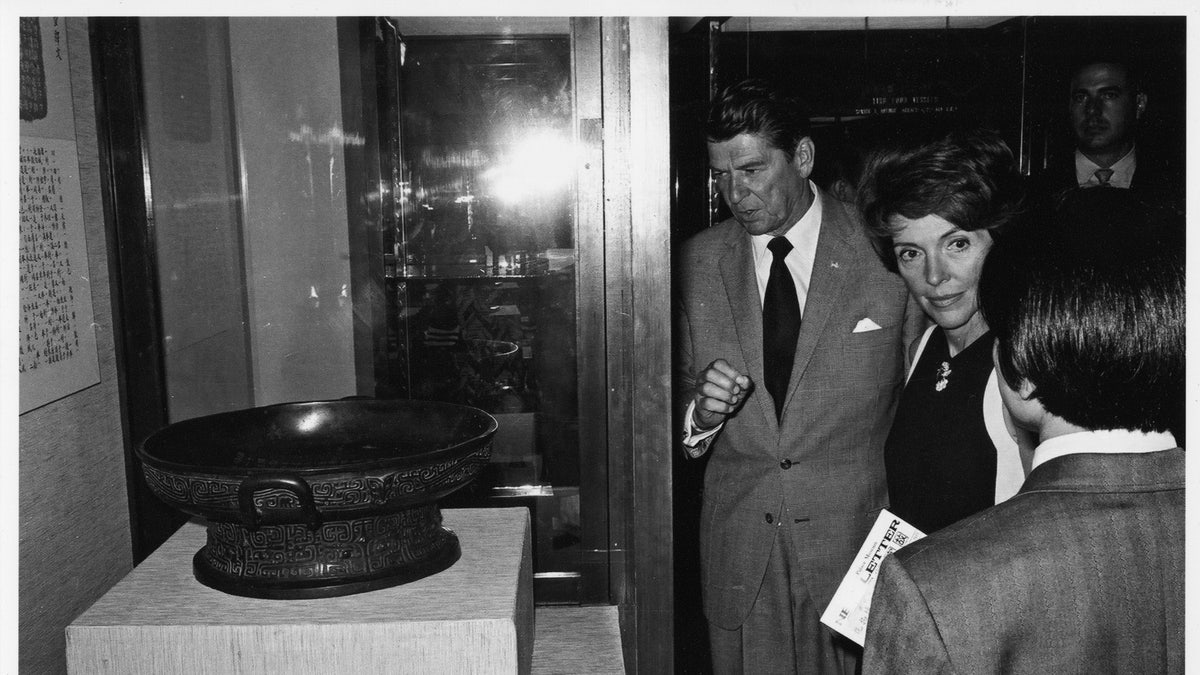
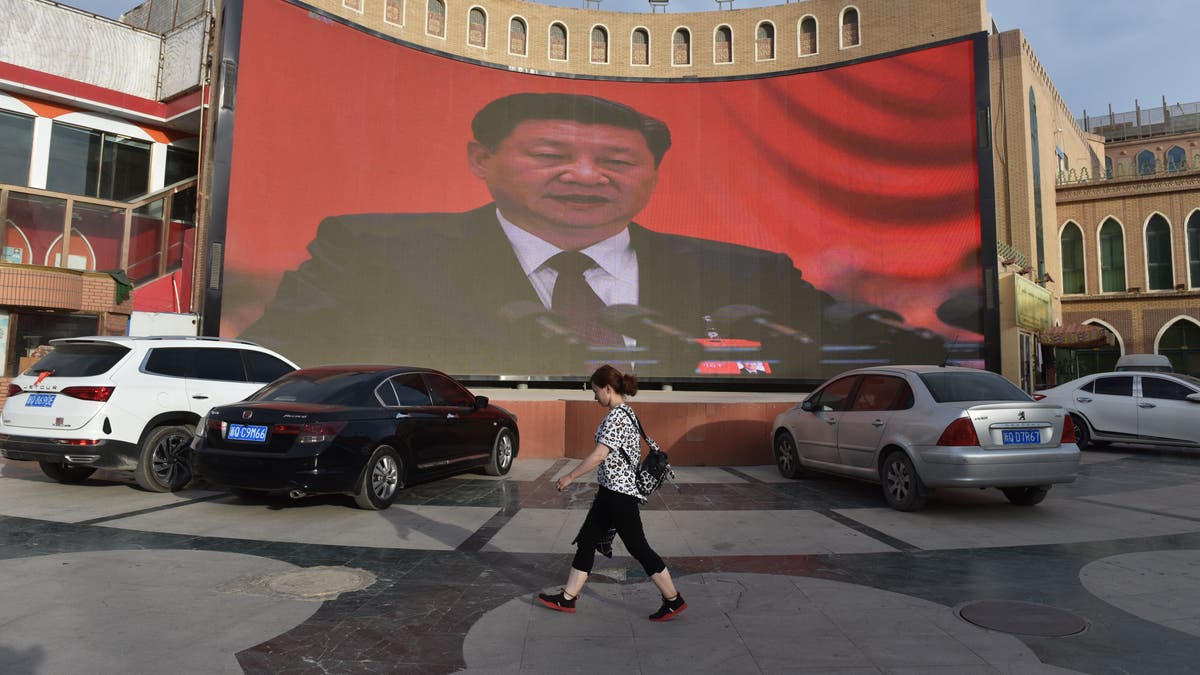
As the world’s attention remains divided on the Israel-Hamas war and Russia’s invasion of Ukraine, a delegation from the Ronald Reagan Foundation visited Taiwan last week seeking to shore up U.S. support for the island that continues to be threatened by Beijing.
“Taiwanese skepticism about America’s staying power and its ability to deter aggression is on the rise,” Heino Klinck, former deputy assistant secretary of defense for East Asia, told Fox News Digital.
“The Biden administration’s precipitous Afghanistan withdrawal, piecemeal material support to Ukraine, inability to provide defense articles in a timely manner, as well as other foreign policy woes are the fodder for Chinese disinformation and propaganda that fuel this skepticism.”
The foundation’s trip recalls two visits President Reagan made while still serving as governor of California, first in 1971 and again in 1978. The delegation included members from the foundation and members of various groups, including former politicians, military experts and members from companies like Google and Citigroup.
CHINESE FIGHTER JET FLIES WITHIN 10 FEET OF US B-52 BOMBER: US MILITARY

California Gov. Ronald Reagan, Nancy Reagan and Ron Reagan meeting President Chiang Kai-shek at the Presidential Office in Taipei, Taiwan, Oct. 10, 1971. (The Ronald Reagan Presidential Foundation and Institute)
Taiwanese President Tsai Ing-wen met with the delegation, thanking the group for its “hospitality and considerable support” when she visited the Reagan Library earlier this year and highlighted the work done to “enhance Taiwan-U.S. relations.”
“Taiwan and the U.S. share the values of freedom and democracy,” Tsai said. “Together, we strive for peace and prosperity in the region. … Our other distinguished guests have continued President Reagan’s legacy and ideals in advocating for individual freedom, economic opportunity and global democracy.”
Reagan established himself as a “devoted defender” of Taiwan, often calling for the establishment of “official” or “government-to-government” relations, according to an article from The Washington Post written during his first presidential campaign.
NORTH KOREA ACCUSES ISRAEL OF ‘GENOCIDE’ IN GAZA, LABELS US AN ‘ACCOMPLICE’

Taiwan’s President Tsai Ing-wen meeting with the Reagan Foundation’s David Trulio and a visiting delegation from the U.S. (The Ronald Reagan Presidential Foundation & Institute)
“I would not pretend, as [President] Carter does, that the relationship we now have with Taiwan, enacted by our Congress, is not official,” Reagan said regarding the difference between him and the man he would eventually defeat. Reagan would later temper his language to align more with official U.S. policy, but his actions toward Taiwan remained those of a close friend and ally.
When Reagan visited China in 1984, he sought to reassure Taiwan he would not agree to any deals that would hinder relations between Taipei and Washington, with assurances delivered verbally and in briefings to representatives from Taiwan, The New York Times reported at the time.

In this photo released by Xinhua News Agency, fighter jets of the Eastern Theater Command of the Chinese People’s Liberation Army (PLA) conduct a joint combat training exercises around the Taiwan Island on Aug. 7, 2022. (Gong Yulong/Xinhua via AP)
The Foundation quoted Reagan, saying, “There are cultural differences making nations each unique in its own way, but at the same time I think all are bound together with a common heritage of a love of freedom,” and “our destiny is democracy and the defense of that destiny is one that all of us share.”
Reagan Foundation President David Trulio told Fox News Digital the group undertook the trip because it is “strongly behind the long-standing bipartisan consensus supporting Taiwan.”
ISRAEL IS ‘VERY AWARE’ OF ITS SECURITY ENVIRONMENT: LT. COL. DAKOTA WOOD
“The Ronald Reagan Presidential Foundation and Institute was honored to lead this delegation to Taiwan, a vibrant democracy and an absolutely key economic partner in Asia, a region vital to America’s future,” he said.
Klinck in his comments to Fox News Digital continued to focus on the growing Taiwanese public skepticism, arguing that the people worry that U.S.-Taiwan relations have regressed to “a sub-component of the U.S.-China relationship.”

The vice minister of national defense and members of his team with the Reagan Foundation and Institute delegation. (The Ronald Reagan Presidential Foundation & Institute)
“The merits of Washington-Taipei relations in all domains must be emphasized outside of Washington-Beijing dynamics,” Klinck said. “Leveraging opportunities such as completing a U.S.-Taiwan free trade agreement and U.S. leadership to internationalize peace, security and stability in the Taiwan Strait would be strong messages underscoring American commitment.”
Concern over U.S. commitment to Taiwan has accelerated following the Hamas terrorist attack on Israel, which has consumed global media and political minds and seemingly sucked the oxygen from other conflicts. Even Ukraine coverage has found diminished airtime in the face of the rapidly escalating situation in the Middle East.
NATO ALLY PRAISES HAMAS AS ‘FREEDOM FIGHTERS,’ CONDEMNS ISRAEL AS A ‘WAR CRIMINAL’

California Gov. Ronald Reagan and Nancy Reagan visiting the National Palace Museum in Taipei, Taiwan, in October 1971. (The Ronald Reagan Presidential Foundation and Institute.)
Former Sen. James Talent, R-Mo., told Fox News Digital Ukraine “is very much on the minds of Taiwanese leaders” who “appreciate America’s policy of support” for Ukraine because Taiwanese leaders “think it is important for the democracies of the world to make clear that unprovoked aggression is something they will resist.”
“We need to strengthen deterrence, which means both Taiwan and the United States building up the kind of military capabilities that gives Beijing pause about blockading or invading Taiwan,” Talent said. “That’s the big and most urgent challenge.”

This photo taken on June 4, 2019 shows people walking past a screen showing images of Chinese President Xi Jinping in Kashgar, in China’s western Xinjiang region. – A recurrence of the Urumqi riots which left nearly 200 people dead a decade ago is hard to imagine in today’s Xinjiang, a Chinese region whose Uighur minority is straitjacketed by surveillance and mass detentions. A pervasive security apparatus has subdued the ethnic unrest that has long plagued the region. (GREG BAKER/AFP via Getty Images)
He highlighted other challenges, such as the way China uses economic power to advance national objectives. But he praised Taiwan’s efforts to develop “self-sufficient” defensive power and “a greater role in Asian affairs.”
CLICK HERE TO GET THE FOX NEWS APP
Trulio stressed that America must keep in mind that “the world is watching” how it handles these various crises, and the way Ukraine and Israel play out will have “impacts” on “both sides of the Taiwan Strait.”
“The Chinese Communist Party is attempting to use misinformation to make the Taiwanese people skeptical about America’s will to support its friends and allies,” Trulio argued. “It was clear from our discussions in Taiwan that strong support for Ukraine counters that skepticism and would make China less inclined to initiate a crisis.”
Peter Aitken is a Fox News Digital reporter with a focus on national and global news.
[ad_2]
Source link

